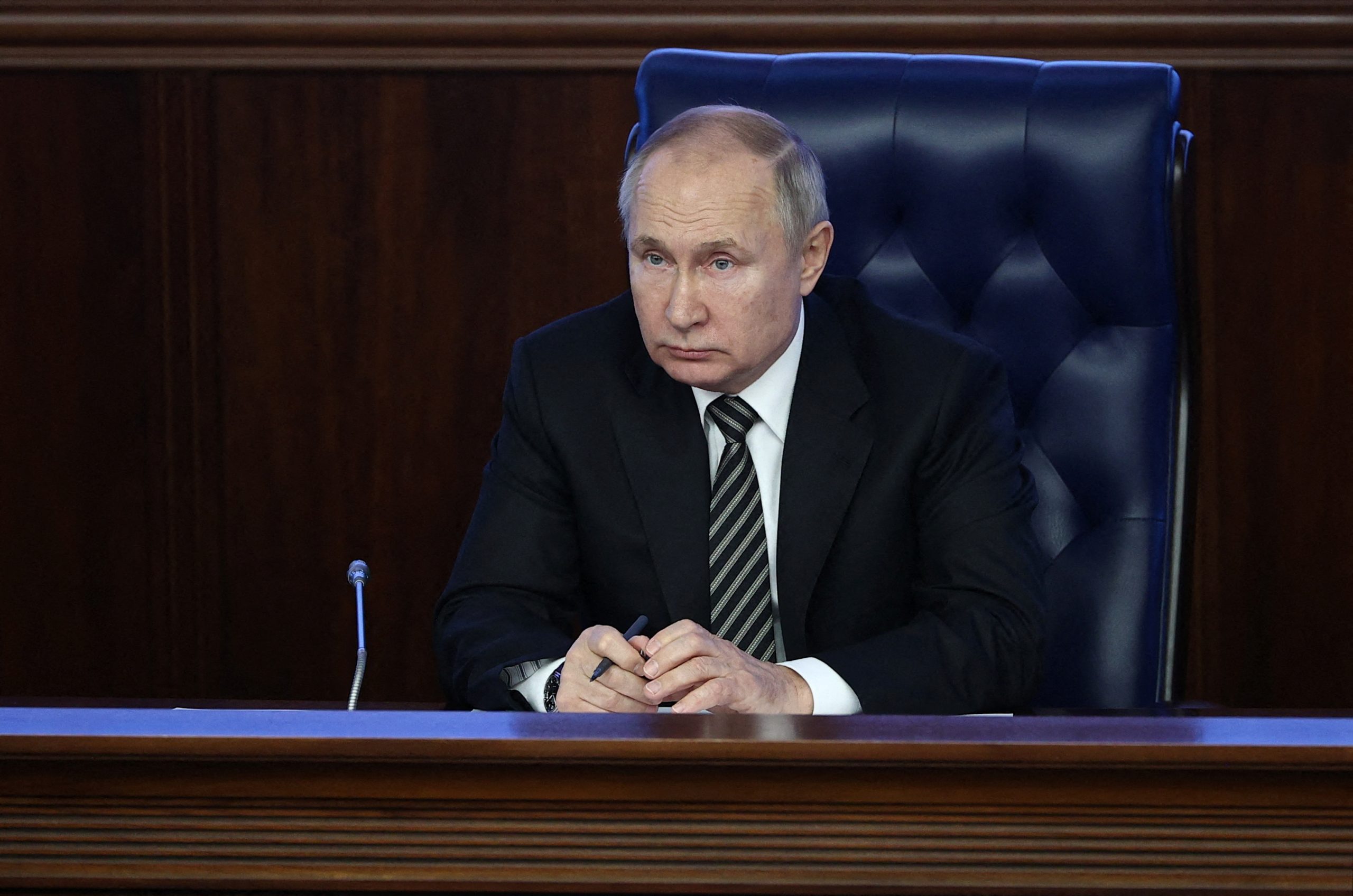
Chris Lange, FISM News
[elfsight_social_share_buttons id=”1″]
A team of cyber warfare experts from the United States and the U.K. has been “quietly” dispatched to Ukraine in response to growing concerns that the Kremlin may be planning to carry out cyberattacks against the former Soviet republic, according to a New York Times report.
As tensions remain high amid Russia’s continued, heavy military presence at the Ukrainian border, the US and its allies are anticipating that Russian President Vladimir Putin will launch a cyberattack on Ukraine with the potential to destroy the country’s power grids, crippling its government and infrastructure
U.S. officials would not provide information on the nature and makeup of the cyberteams that have been inserted into Ukraine; instead, the Biden administration issued a general statement that the US has “long supported Ukraine’s efforts to shore up cyber defenses and increase its cyber resiliency.” A source noted that the administration scrapped its initial plans to deploy a larger number of cyber warfare experts, including U.S. Cyber Command personnel, settling instead on a smaller team.
A spokesperson for the British government said that its involvement in responding to the cybersecurity threat is “defensive in nature.”
Putin may seek to make Ukrainian President Volodymyr Zelensky appear “inept” and further weaken his government with a cyberattack in order to make it easier for Moscow to launch an offensive, according to U.S. intelligence assessments obtained by the Times.
Russia’s years-long cyberattack operations against Ukraine, coupled with recent ransomware attacks against critical US organizations that have been linked to Russian hackers, points to an effort by the Kremlin to gain leverage by exposing cyber vulnerabilities in order to exert pressure on both countries.
“This is a widespread campaign targeting many Ukrainian government agencies, including home affairs – the national police – and their electric utilities,” Dmitri Alperovitch, a leading Russian cyber activity investigator and chairman of research group Silverado Policy Accelerator, told the Times, adding that recent cyberattacks are essentially Moscow’s “preparation for the battlefield.”
“This is a Russian calling card,” Mark Montgomery, senior director of the Center on Cyber and Technology Innovation at the Foundation for Defense of Democracies, told The Hill Wednesday. “I do worry that they will use their cyber and disinformation tools to try to undermine the stability of the Ukrainian economic security and national security.”
John Hultquist, vice president of intelligence analysis at cybersecurity company Mandiant, said Putin may very well introduce a “new novel capability” in cyber warfare, adding, “The interesting thing about a lot of this capability is it’s used often before any actual shooting, because it’s a tool that is deniable and… useful as a tool prior to war.”
Earlier this month, following Moscow’s deployment of troops and heavy artillery to the Ukrainian border, Biden warned Putin during a videoconference that the U.S. would enact “strong economic measures” should Russia choose to invade Ukraine.
Since the 1991 collapse of the Soviet Union, Putin has sought to prevent NATO from expanding into Ukraine. Currently a NATO partner, Ukraine does not benefit from the organization’s core principle of collective defense available only to NATO members.
“I think that Vladimir Putin will very willingly use whatever tools are at his disposal to do whatever he wants,” Montgomery said. “I think he makes his own decisions, and the fact that it bothers us gives him a level of enjoyment.”
